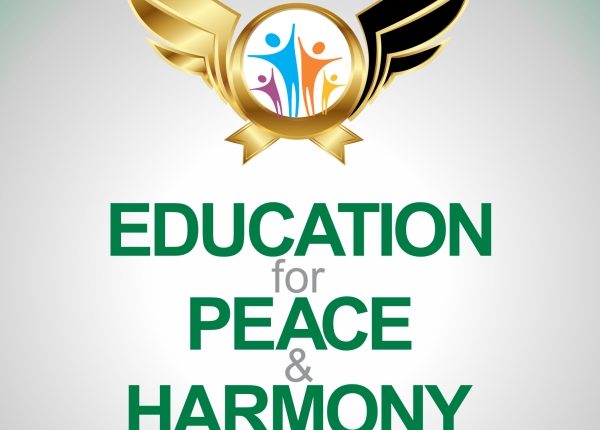Education for peace and harmony


- After Study Hours: Exploring the Madrassah Mindset
- Education for peace and harmony
- Reconstruction of the National narratives and Counter-Violent Extremism Model for Pakistan
- Role of Post-Noon Engagements of Madrassa Students in Radical Orientation
- Promoting Inclusive and Tolerant Educational Narratives
- Islam, Democracy and the Constitution of Pakistan
- Minority Rights in Pakistan: Historic Neglect or State Complicity?
- “Creating an environment that counteracts militant ideologies and radicalism in Pakistan”
- Through Each Other’s Eyes
- The Role of Ulema in Promotion of Peace and Harmony in Society
- Critical Ideologies: A Debate on Takfeer & Khurooj
- سماجی ہم آہنگی ، رواداری اور تعلیم
- سماجی ہم آہنگی کیسے ہو؟
- اسلام جمہوریت اور آئین پاکستان
- پر امن اور متوازن معاشرے کے قیام میں علماء کا کردار
- اسلام جمہوریت اور پاکستان
- ایک دوسرے کے نظر سے
- مسئلہ تکفیر و خروج
- Media Safety in Pakistan
- محفوظ اور ہم آہنگ پاکستان
- Reconstruction of the national narratives and counter-violent extremism model for pakistan
- Secure and Inclusive Pakistan
- تعلیم امن اور ہم آہنگی
- Regulating Broadcast Media: Challenges & Reforms
- Pakistan’s Sectarian Mire & The Way Forward
- Dialogue Pakistan 2019 report
- Pakistan’s achievements in war on terror but at what cost: a special review of the current decade
- Pakistan in changing world order
- Who Am I
- Academic and Intellectual Dialogue on Social Harmony, Tolerance and Education
- Youth Engagement in Pakistan: Baseline Evaluation and Way Forward
- Dialogue Pakistan 2020
- Strengthening Governance in Pakistan
- Youth Perspective on Society, Religion, And Politics
- Supporting the Afghan peace process: Pakistan’s position, interests and policy options
- Afghanistan as Seen from Pakistan I
- Afghanistan as Seen from Pakistan II
- Perspectives from Pakistan on Afghan peace and reconciliation 1
- Discourse with Balochistan Youth on Society, Religion, and Politics
- Perspectives From Pakistan on Afghan Peace and Reconciliation 2
- How Youth in Sindh View State, Religion and Politics
- Afghan Peace and Reconciliation: Pakistan’s Interests and Policy Options II
- Interfaith Relations in Pakistan Perspectives and Worldview of Youth in Punjab
- Afghanistan as Seen from Pakistan III
- Making Sense of Pakistani Youth How Youth in Pakistan View State, Society, Religion, and Politics
- PERSPECTIVES FROM PAKISTAN ON AFGHAN PEACE AND RECONCILIATION 3
- AFGHAN PEACE AND RECONCILIATION: PAKISTAN'S INTERESTS AND POLICY OPTIONS 3
- A Path to Peace
- Countering Violent Extremism on Campuses A Faculty-Oriented Policy Brief
- PERSPECTIVES FROM PAKISTAN ON AFGHAN PEACE AND RECONCILIATION 4
- Afghanistan as Seen from Pakistan IV
- AFGHAN PEACE AND RECONCILIATION: PAKISTAN’S INTERESTS AND POLICY OPTIONS 4
- Afghanistan as Seen from Pakistan V
- AFGHAN PEACE AND RECONCILIATION: PAKISTAN’S INTERESTS AND POLICY OPTIONS 5
- PERSPECTIVES FROM PAKISTAN ON AFGHAN PEACE AND RECONCILIATION 5
- Charter of Peace
- AFGHAN PEACE AND RECONCILIATION: PAKISTAN'S INTERESTS AND POLICY OPTIONS VI
- AFGHANISTAN AS SEEN FROM PAKISTAN-VI
- PERSPECTIVES FROM PAKISTAN ON AFGHAN PEACE AND RECONCILIATION 6
- Youth for interfaith harmony Newsletter 1
- AFGHAN PEACE AND RECONCILIATION: PAKISTAN’S INTERESTS AND POLICY OPTIONS
- PERSPECTIVES FROM PAKISTAN ON AFGHAN PEACE AND RECONCILIATION 7
- AFGHANISTAN AS SEEN FROM PAKISTAN-VII
- YOUTH AND THE SOCIAL CONTRACT IN PAKISTAN
- Pakistan’s Afghan perspective and policy options
- Charter of Peace
- PERSPECTIVES FROM PAKISTAN ON AFGHAN PEACE AND RECONCILIATION 8
- AFGHANISTAN AS SEEN FROM PAKISTAN-VIII
- AFGHAN PEACE AND RECONCILIATION: PAKISTAN'S INTERESTS AND POLICY OPTIONS 8
- AFGHAN PEACE AND RECONCILIATION: PAKISTAN’S INTERESTS AND POLICY OPTIONS 9
- AFGHAN PEACE AND RECONCILIATION: PAKISTAN'S INTERESTS AND POLICY OPTIONS - 11
- Pakistan's Evolving Militant Landscape: State Responses and Policy options
- AFGHAN PEACE AND RECONCILIATION: PAKISTAN’S INTERESTS AND POLICY OPTIONS – 12
- TRENDLINES OF PAKISTAN'S SECURITY CHALLENGES
There is a dire need to infuse in the education system in Pakistan a diversity of opinion, and the tools to develop ethical values among students besides training them in critical thinking and research. There is also need to make education curricula and teaching more inclusive and tolerant. Only then can the seeds of social harmony be sown. Properly-sensitized teachers can take a lead role in making this possible.
These were some of the key thoughts that emerged in ten (10) day-long academic and intellectual dialogue-cum-training sessions, with around 347 faculty members of public sector colleges and universities from all over the country in 2017. Leading scholars and educationists led the training sessions that were organized by Pak Institute for Peace Studies (PIPS).
Teachers understood how education system at large and the content they are supposed to teach uphold divide and discrimination in the country. This realization is greatly felt today, as country grapples with achieving social harmony. A sound education system can build strong foundation of countering any trace of disharmony.
Much rests on teachers, who, if properly trained and sensitized, can contribute significantly in achieving peace and harmony for tomorrow. Supporting and often leading role can come from media too, which people eagerly follow.
For each workshop, two survey questionnaires were also filled by participants, one at the start of the workshop and another in the end. As many as 329 teachers filled pre-workshop survey questionnaires, and 320 filled the post-workshop survey forms.

